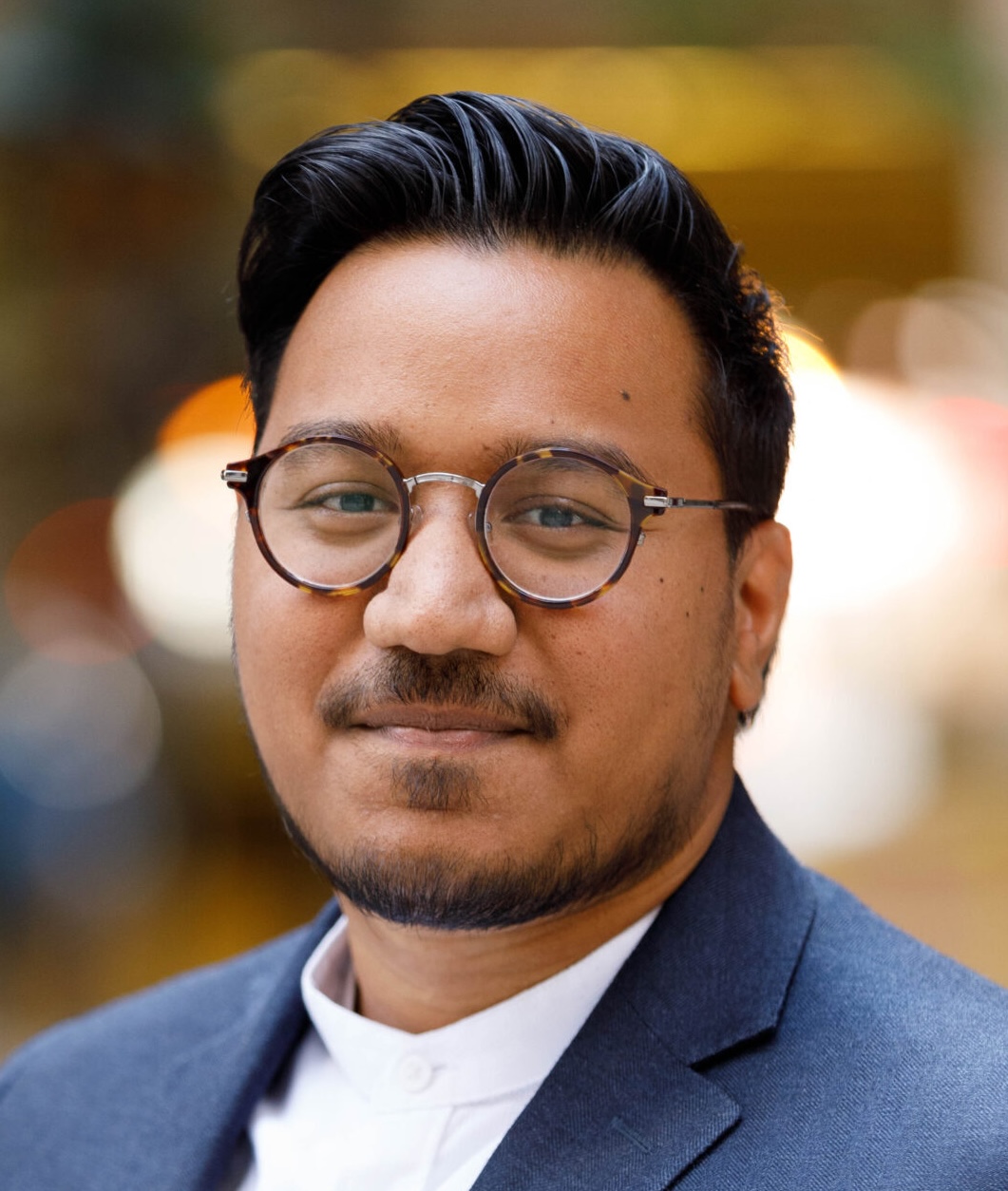 I am a part of the generation of young millennials and Gen-Z that have “lost their faith.”
I am a part of the generation of young millennials and Gen-Z that have “lost their faith.”
I was raised in the evangelical tradition. I grew up reading I Kissed Dating Goodbye and Blue Like Jazz. To the confusion of my public school peers, I sported a purity ring on my left hand and t-shirts that said “Unashamed” and “God is Love.” At youth group, I’d quote VeggieTales and reminisce about the best episodes of Bibleman. In high school, I worked as a hybrid janitor-worship leader at my local church for three years. Occasionally, I even climbed the pulpit to preach at the Saturday men’s group or Wednesday night youth service. Every Sunday, you’d find me in the front row of every service, taking (and retaking) notes.
I also studied at Moody Bible Institute, a historic evangelical college located in downtown Chicago. In my four years there, I learned about theology, ancient Greek, and methods of interpretation. I played in the chapel band, led the Student Theological Society, and served as an RA for my dorm floor. I attended the annual missions conference and Founders Week, learning from many leaders who frequent the pages of Christianity Today. I faithfully showed up each week to my ‘Practical Christian Ministry’ assignments, traveling out to Chicago neighborhoods to volunteer at various non-profit organizations and after-school programs.
My time in the evangelical tradition, though, has also come with lasting pain points. I can recall evangelical pastors who told me that my Indian identity and Christian faith were unreconcilable. They instructed me to leave my cultural heritage behind and “find my identity in Christ.” I think of my Bible college peers who, in their evangelical zeal, saw my physical disability and felt compelled to stop me and pray for my healing. Yet, when the healing did not manifest, these peers condemned me for not having enough faith in God. I recall also the rebuke I received from my professors for studying with the one Indian American professor in the theology department—the only faculty member who told me to embrace my Indianness as a site of God’s work in my life.
Given this, arguing for the constructive role of “evangelicals in a diverse democracy” is not a project I can hold at arm’s length. The question of how we might live faithfully and neighborly in a world we don’t control is bound up with my own faith and experience in the evangelical tradition. I am not a passive observer; I am an active participant. Like those who’ve contributed to this incredible series, my faith is fundamentally shaped by the evangelical tradition.
I resonate with Tish Harrison Warren, who acknowledges a decisive shift in the evangelical tradition that has made it unrecognizable to many who’ve taken this identity as their own. I gladly adopted the evangelical label for most of my life, even in spaces like Princeton Seminary, where I studied for three years. While I did not perfectly align with the evangelicalism of Moody Bible, I could find my home among theologians like Rev. Warren, and also Vincent Bacote, Soong-Chan Rah, Rene Padilla, and Bill Pannel. These leaders (and many more) held together the core theological commitments of the evangelical tradition while using them to seek justice, mercy, and flourishing for communities that looked like mine.
Today, though, evangelicalism has functionally become tied to the Republican party and its MAGA expression. Once again, early exit polls for the 2024 election show overwhelming support from American evangelicals for Donald Trump and his movement. While there are quantitatively fewer American evangelicals than in 2020 and 2016, this consistent trend signals an ongoing shift in the tradition and what is assumed of those within it.
We see this in prominent evangelical leaders and pastors who teach that there is only one candidate we can vote for as Christians, and in Christian books instructing believers to follow one specific set of policies and social positions. We find these norms in the “insider/outsider” rhetoric preached from the pulpit that can quickly devolve into an “us-versus-them” approach to Christian witness. It is a gospel message that rightly proclaims “God with us” but fails to recognize that God is with “them” too.
When Christians—especially young Christians—push back against these shifting norms, these leaders look at my generation and assume we’ve left our faith at the door. However, these different expressions should not be confused with a wavering commitment to Christ and his church. If anything, our creative expressions of faith, worship, and gospel proclamation reflect a commitment to making Christ known in this new American landscape that Matthew Kaemingk calls a “pluralistic bazaar of diverse cultures, religions, ideologies, and lifestyles.”
This change, though, isn’t for the sake of being different or unique. Instead, it is an active response to the church’s inability to reckon with and engage in this new landscape. Many of my peers, like myself, bear the scars of evangelical action and inaction. Truly, this cultural moment is exposing the abusive actions of religious leaders, the transformation of congregations into political camps, and the inability of theologians to substantively address the evil and injustices of our world. We see evangelicals’ endless pursuit of control and power that comes at the cost of loving our neighbors and demonizing those who disagree with us.
Yet, rather than abandoning the faith altogether, my Christian peers are reimagining what our shared life together might look like. This Christian practice, as both Nikki Toyama-Szeto and Tom Lin lift up, is one of radical love—for God, for neighbor, for the world we are called to steward, and for the bodies we have been given to inhabit for a brief time. It is a faith that chooses conversation over control and persuasion over power. It is the path that Kristen Johnson illustrates as an open hand that offers “life and hope to the world.” Rather than treating our future like a coin flip, we are following Jesus in reordering “the priorities of the entire conversation,” as Russell Moore writes.
This vision of neighbor love is wonderfully local. The leaders of my generation are not merely seeking the next megachurch pulpit or the illusion of fame and success. Neither are they tying themselves to a single political platform or party. Instead, we are investing in our communities, recognizing that our flourishing is deeply tied to our neighbors’. While we are deeply concerned with the issues that plague our country and world, we recognize that decreasing the number of unhoused people means building houses, that minimizing the number of abortions in America requires an investment in systems of support and care for mothers and families, and that eliminating gun violence requires us to show up at our city hall or state capitol with a petition in hand. As Karen Swallow Prior powerfully summarizes, “Just as ‘all politics is local,’ so, in a sense, is all neighborliness local, too.”
In this work, we have sought out new exemplars who offer a different way forward. We follow in the path of experienced leaders like Bishop Alexander, who encourages us not to shy away from the struggles of this world but instead remain “present in moments of crisis and experience life alongside those we lead.” And Justin Giboney, who admonishes Christians to be the “light of the world” through practices of public witness, moral imagination, neighborliness, and humility.
Following the 2024 U.S. presidential election, the question remains: What’s next?—for Christians, for our country, for our neighborhood, for our families, for our faith. As an evangelical Christian working at an interfaith organization, I share in John Inazu’s hope that collaboration and friendships across different faith traditions will become more commonplace in the years to come. I believe we can hold these relationships close while fully acknowledging that fundamental differences exist between us—and even more, that the site of our differences is fertile soil for planting the seeds of a truly common good. To embrace these opportunities does not compromise our faith; it bears witness to its very power. In this cultural and political moment, I am convinced that the leaders of my generation and those after are ready to embrace the wonderful, Christ-like freedom of moving in and through this world with a desire to love all of our neighbors. It is only in this freedom that we are able to truly live faithfully and neighborly in a world that we don’t control.
 Amar D. Peterman is Assistant Director of Civic Networks at Interfaith America, where he manages both the Emerging Leaders and Evangelicals in a Diverse Democracy initiatives. He is also an author and theologian working at the intersection of faith and public life. His work has been featured in publications ranging from Christianity Today to Georgetown University’s Berkley Forum. He holds an M.Div. from Princeton Theological Seminary and B.A. in Theology from Moody Bible Institute. Before coming to Interfaith America, Amar served as Assistant Director of Neighborly Faith and Director of the Center for Empathy in Christian and Public Life. His first book, which focuses on the common good, faith formation, and love of neighbor, is forthcoming with Eerdmans Publishing Company.
Amar D. Peterman is Assistant Director of Civic Networks at Interfaith America, where he manages both the Emerging Leaders and Evangelicals in a Diverse Democracy initiatives. He is also an author and theologian working at the intersection of faith and public life. His work has been featured in publications ranging from Christianity Today to Georgetown University’s Berkley Forum. He holds an M.Div. from Princeton Theological Seminary and B.A. in Theology from Moody Bible Institute. Before coming to Interfaith America, Amar served as Assistant Director of Neighborly Faith and Director of the Center for Empathy in Christian and Public Life. His first book, which focuses on the common good, faith formation, and love of neighbor, is forthcoming with Eerdmans Publishing Company.


